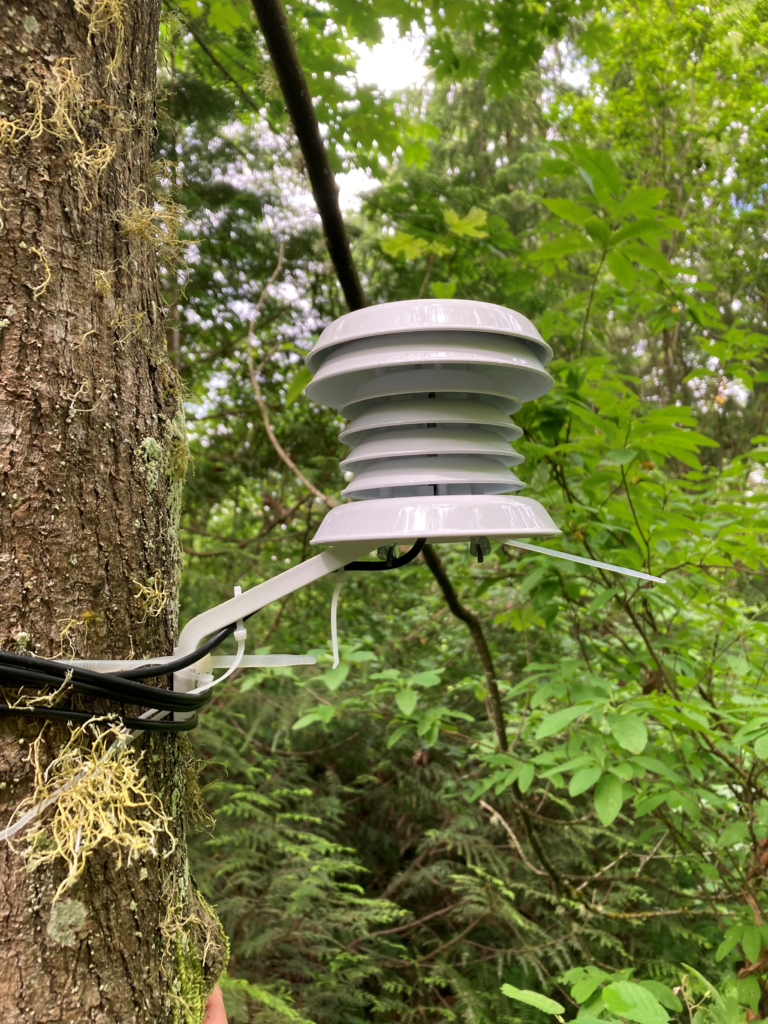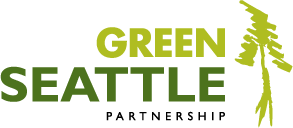
Seattle is one of 12 cities across the U.S. that will study the cooling potential of forested parklands. In collaboration with the New York City-based nonprofit Natural Areas Conservancy, the results of this study will help cities prepare for climate change.
Seattle, WA – 2021 was the hottest summer on record in the United States. Cities are documented to be 2-10 degrees F hotter than rural areas, and extreme heat is the leading cause of weather-related deaths in the United States. Planting trees and maintaining green spaces are known to resist urban heat impacts. However, the extent of cooling benefits has not been measured across a city’s urban forest, such as trees in managed versus natural landscapes, nor across the patchwork of land cover types (such as grass, asphalt, trees, bare ground, water, etc.) that make up our cities.
Urban natural areas, which include forests, wetlands and grasslands, account for the majority of parkland across U.S. cities. In Seattle, street level heat mapping from 2020 has shown the city was as much as 20 degrees hotter than less urbanized areas of King County, due in large part to differences in land use and land cover. The city’s 2,700 acres of forested parklands are some of the coolest spots city-wide. Not every neighborhood benefits. Accordingly, the harmful effects or urban heat are spread inequitably across our communities.



Cross-Country Study
To expand this research, Seattle Parks and Recreation and the Green Seattle Partnership and the Green-Duwamish Urban Waters Federal Partnership are participating in a cross-country study as part of the Forests in Cities Network. In collaboration, we will work to measure differences in temperature across natural and built environments using satellite data in combination with temperature sensors installed in trees throughout the city’s forests. This strategy will test whether forest ecosystems in restoration or other care are cooler than forests without stewardship or trees outside of forest ecosystems. These sensors will record the air temperature constantly until the end of September. You might spot one of these temperature sensors in several parks, including but not limited to Kubota Gardens Natural Area, Discovery Park, the Duwamish Greenbelts and Longfellow Creek Greenspaces.
The study is currently underway, and the results–expected in winter 2022–will help Seattle better understand how urban natural areas can contribute to cooling urban settings and climate change adaptation. The information aligns with, and will inform, recommendations already presented in SPR’s strategy “Climate Resiliency in Seattle’s Parks and Recreation System” released in January 2022.

“Simply put, we have strong indications that our parks and natural areas play a key role in keeping Seattle cool among other benefits. With urbanization only increasing across the world and cities projected to house close to 90% of the U.S. population by 2050, it is imperative that we find answers to in cities to manage the impacts of the changing climate. This country-wide study will measure both local and national temperatures which will help us understand how to chart our future as a city.” -Christopher Williams, Acting Superintendent, Seattle Parks and Recreation
About the Forests in Cities Network | https://fic.naturalareasnyc.org/
The Forests in Cities Network is a national network dedicated to promoting and advancing healthy forested natural areas in cities across the U.S. through science, management, partnerships, and communications. This network was created in 2019 by the Natural Areas Conservancy.
About the Natural Areas Conservancy | www.naturalareasnyc.org
Founded in 2012, the Natural Areas Conservancy has served as New York City’s leading nonprofit dedicated to studying and helping to care for the city’s 20,000 acres of forests and wetlands. The NAC promotes nature’s diversity and resiliency across the five boroughs.
For more information, contact:
Seattle point-person: Lisa Ciecko | Plant Ecologist, Seattle Parks and Recreation – Green Seattle Partnership
FiC contact: Clara Pregitzer | Deputy Director of Conservation Science, Natural Areas Conservancy clara.pregitzer@naturalareasnyc.org
